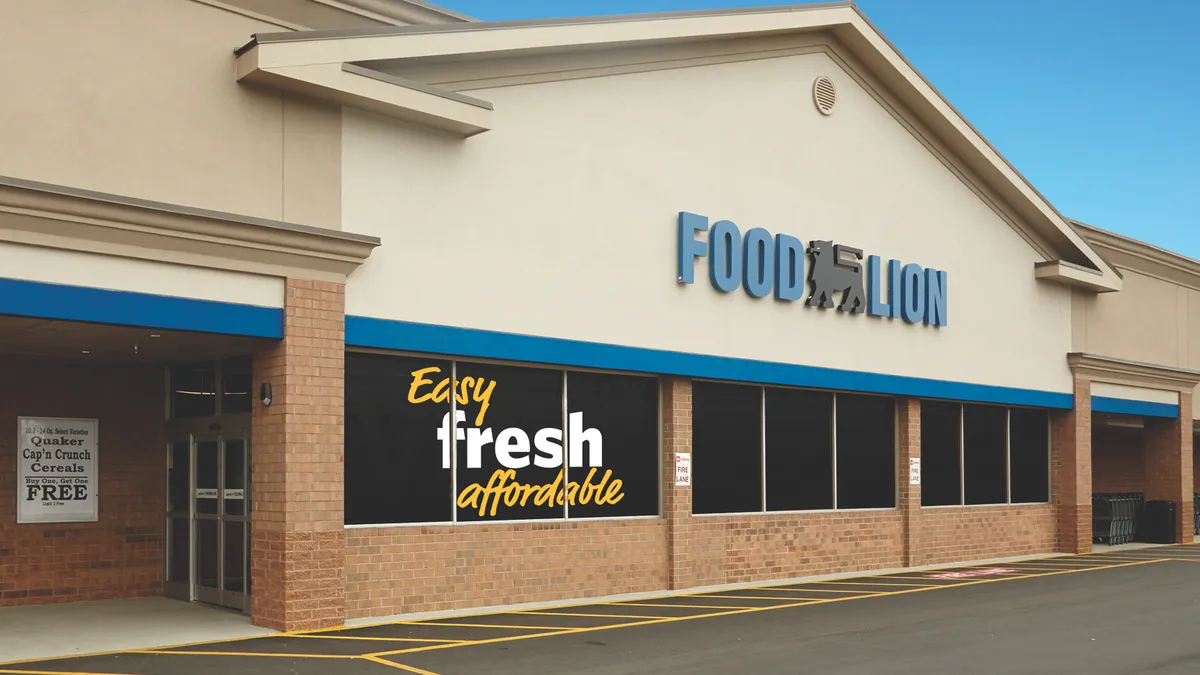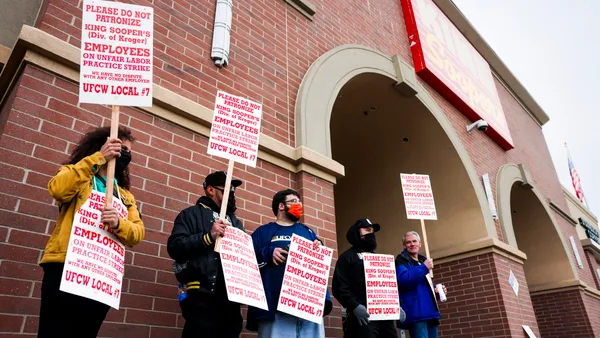Dive Brief:
- Ahold Delhaize announced Wednesday that its Food Lion banner has agreed to acquire 62 locations from rival Southeastern Grocers. Terms of the deal were not disclosed.
- The 46 Bi-Lo and 16 Harveys Supermarkets stores being acquired are located in Georgia, North Carolina and South Carolina — states where Food Lion currently operates 630 stores — and promise to boost Food Lion’s market share along the East Coast. Food Lion said it expects to hire more than 4,650 associates to work at the acquired stores. As part of the deal, Food Lion will also acquire a distribution center in Mauldin, South Carolina. Ahold Delhaize said it expects both transactions to close in the first half of 2021, subject to customary closing conditions.
- In a separate announcement, Southeastern Grocers said it will exit the Bi-Lo grocery brand and is exploring strategic options, including possible sales, for the Bi-Lo stores not associated with the Food Lion deal. Southeastern will also transfer pharmacy operations at 57 Bi-Lo and Harveys stores to CVS and Walgreens within the next two weeks. Southeastern said it will use the proceeds from asset sales to strengthen its Winn-Dixie, Fresco Y Mas and Harveys locations.
Dive Insight:
Wednesday's announcements promise to significantly impact grocery retailing in the Southeastern U.S. by boosting an improving brand while opening up additional store locations for competitors to claim.
Food Lion’s sales have improved in recent years on the back of a sweeping store remodeling and rebranding campaign. Now the company will further strengthen its position in three states where it operates the majority of its stores and has strong brand awareness.
The grocer’s “Easy, Fresh and Affordable” initiative, which kicked off in 2014 and has touched more than 80% of its more than 1,000 stores, has helped drive comp sales growth through improved store layouts, fresher assortments and new omnichannel features like store pickup. Last year, parent company Ahold Delhaize consistently called out Food Lion’s performance in its earnings statements and noted that the chain’s “overperformance” last summer helped offset the financial toll of an 11-day strike at sister chain Stop & Shop.
To minimize disruption during what’s become a tumultuous period for grocery retailers, the 62 stores announced in Wednesday’s deal will remain under the Bi-Lo and Harveys brand names for the rest of 2020. Beginning early next year and continuing into April, the stores will gradually transition over to the Food Lion brand. Southeastern Grocers said its distribution center in South Carolina will transfer over to Ahold Delhaize Distribution sometime in the first half of 2021.
Bi-Lo, which was owned by Ahold until 2005, when the company sold the brand to the private investment firm that eventually formed Southeastern Grocers, has also refreshed stores, added home delivery and experimented with alternative formats. But the brand has a reputation as a perennial underperformer in a fast-evolving industry.
Southeastern Grocers said Wednesday its exit from the brand is part of its five-year strategy aimed at accentuating core strengths like its improving Winn-Dixie stores. Southeastern exited Chapter 11 bankruptcy two years ago and has remodeled 40% of its store base over the past three years while also making strategic acquisitions. Earlier this year, it purchased eight locations in Florida from bankrupt Earth Fare and Lucky’s Market, and plans to transition them to Winn-Dixie stores by the end of this year.
"The successful execution of our long-term transformation strategy may at times require difficult decisions,” Southeastern Grocers President and CEO Anthony Hucker said in a statement. “Today’s transactions are a critical strategic move and an important next step for our continued growth and broader evolution as a business.”
Deutsche Bank Securities Inc. and PJ Solomon are serving as financial advisors to Southeastern Grocers on the transactions, and PJ Solomon is managing the sale process for the remaining Bi-Lo stores.













